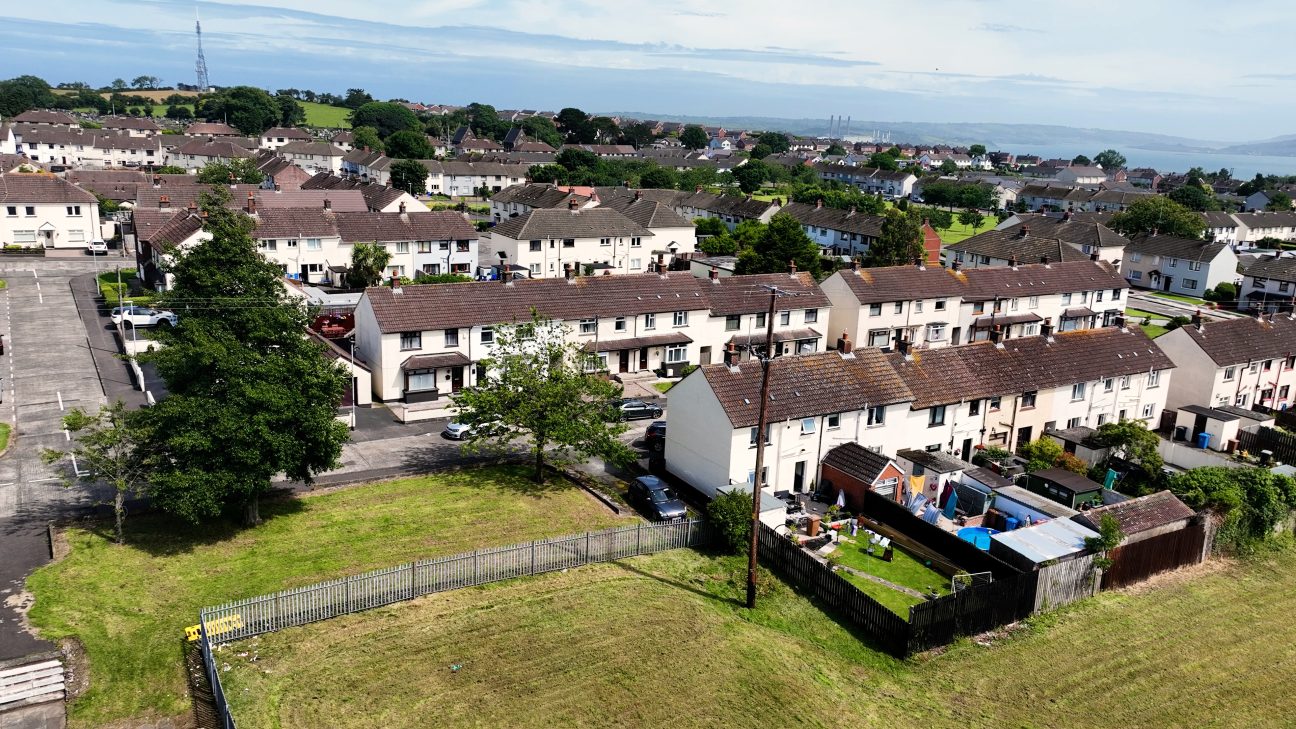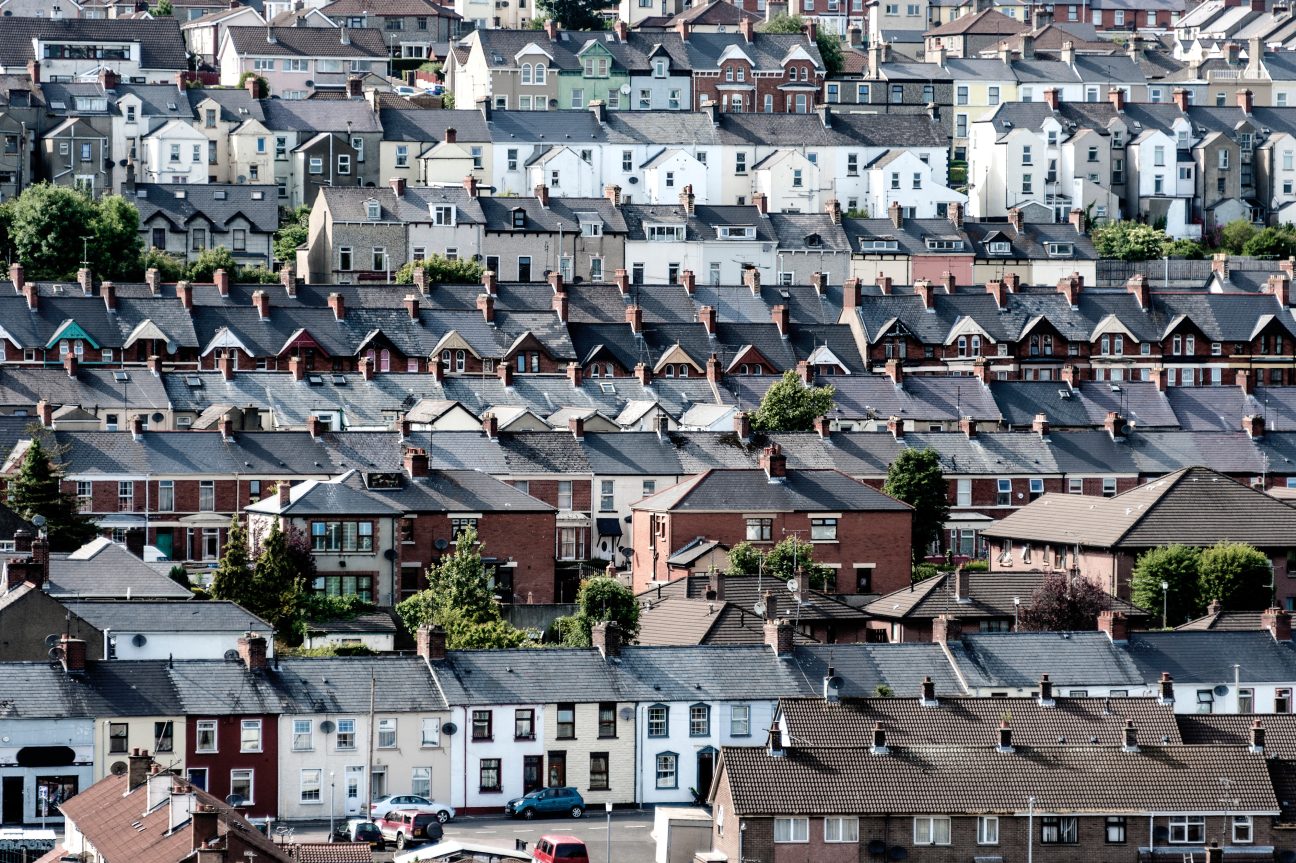
What is social housing?
Social housing (or ‘council housing’ as it is sometimes called) is a very important part of the housing sector, providing affordable and secure accommodation for individuals and families who may not be able to afford private rentals. This type of housing is offered by not-for-profit organisations, ensuring that people with low incomes or other vulnerabilities have access to safe and stable living conditions.
In Northern Ireland, social housing is provided by the Northern Ireland Housing Executive (NIHE) or by housing associations. There are 20 housing associations in Northern Ireland, each operating as a Registered Social Landlord (RSL). The NIHE is the largest provider of social housing.
How is a social landlord different from a private landlord?
Social landlords (RSLs), such as the NIHE and housing associations, provide housing based on need and social rents.
Private landlords rent properties at market rates and are primarily profit-driven, whereas social landlords offer more secure tenancies, often providing additional support services beyond the minimums established by law. Social landlords will also provide support if a person is struggling with their tenancy.
Most social landlords will have a tenant resident group or other mechanism to ensure tenant interests are represented at key decision-making levels. This might include a tenant representative on the Board.
In addition, social landlords will usually have a community programme, investing resources in things like the local environment, social events and outreach programmes. This is rare for private sector landlords.
How does it work?
The NIHE or housing associations act as the landlord, providing and maintaining the housing. Rent levels will vary depending on whether NIHE is the landlord, or a housing association. For NIHE tenants, rent changes require approval from the Department for Communities , whilst housing associations have more flexibility in setting their rent levels. NIHE rent levels are lower than Housing Benefit levels.
To access social housing, individuals must apply through the NIHE. The application process involves a series of assessments to determine eligibility based on four criteria: eligibility, homelessness, priority need and intentionality.
The housing allocation process is based on a points system that prioritises applicants according to their needs, rather than on a first-come, first-served basis.
To use an analogy – compare with a hospital Emergency Department triage, people with lower needs (lower points) may be waiting a long time while newer arrivals with higher needs get priority.
If these conditions are met, applicants are placed on the Common Waiting Lists and they are asked to nominate ‘Areas of Choice’ – essentially asking where they want to live.
Full Duty Applicants (FDA) are people who ‘pass’ all four homelessness tests. They can be assessed as in ‘priority need’ —such as those who are pregnant, have dependent children, or have significant vulnerabilities—and are given higher priority on the waiting list.

What are the benefits of social housing?
Affordability: Lower rent compared to private housing.
Security: Tenants have more secure tenancies.
Support: Access to additional support services.
Community: Often located in well-established communities.
What are the disadvantages of social housing?
Waiting Lists: Long waiting times due to high demand.
Limited Choice: Less flexibility in choosing a location.
Stigma: Sometimes associated with negative perceptions.
Who qualifies for social housing?
To qualify for social housing in Northern Ireland, you must be at least 18 years old (or 16 in certain circumstances) and demonstrate a need for housing.
In order to be eligible for social housing a person must:
- be habitually resident
- have a right to reside in Northern Ireland
- not be subject to immigration control or restricted from accessing public funds
All applicants must have ‘a substantial connection with Northern Ireland’ which is defined by law, and be eligible for public assistance. Anyone in the country illegally will not be entitled to social housing
What is affordable social rent?
The terms ‘affordable housing’ and ‘social housing’ are often used interchangeably, but they mean different things.
Affordable housing is often defined as housing that is offered at below-market value, for sale or for rent. A number of government initiatives may be used to subsidise or designate housing as ‘affordable’. For example, co-ownership schemes, rent-to-buy schemes, intermediate rent and social housing are often described under the umbrella of ‘affordable housing’.
It helps to think of social housing as being one type of affordable housing. In Northern Ireland we can summarise social housing as that provided by a housing association or by NIHE.
Similarly, the phrases ‘affordable rent’ and ‘social rent’ are often used interchangeably but may mean different things.
- Any rent that is set at levels below market value can be described as affordable rent. In the past and in different jurisdictions we have seen schemes that provide affordable rent through subsidies. For example, governments might decide to subsidise living costs for NHS staff or other key workers, essentially providing ‘affordable rent’.
- In Northern Ireland, social rent is best described as the rent level set by NIHE or housing associations that is more accessible to those with lower household incomes. The actual rent levels will vary.
How much does it cost to live in a social home in Northern Ireland?
The cost of living in a social home varies depending on the property size, location and landlord.
From 1st April 2024 the average NIHE rent for tenants (all of Northern Ireland, all property sizes) is £79.96 per week (figure provided by Department for Communities on their website). To compare, figures from the NIHE on their website show:
- the average rental market rate for a one-bedroom property in Belfast (the most expensive area) is £156.51 per week
- the average rental market rate for a one-bedroom property in parts of Fermanagh and Tyrone (the least expensive area)is £100.52 per week
To emphasise, the NIHE rent figure includes multi-bedroom properties, making the difference in rent between their social homes and private rentals even more significant. For people on lower incomes, the private rental market is getting increasingly unaffordable.
How long does it take to get a social home?
The waiting time for a social home can vary widely depending on your circumstances and the availability of housing in your preferred area. It can range from a few months to many years.
As of 31st March 2024 there were 47,312 households on the waiting list (or 86,000 people).
Can you be evicted from a social home?
Yes, you can be evicted from a social home for reasons such as non-payment of rent, anti-social behaviour, or breaching the terms of your tenancy agreement. Social housing landlords must apply for a possession order through the courts.
The Housing Selection Scheme also has a set of ‘disqualifications’ which will make people ineligible for social housing. Examples of disqualifications include:
- Previous rent arrears*
- If you are deemed to have abandoned a previous tenancy
- Anyone assessed as having lived illegally in social housing (for example, they were not the person listed as being resident. This might be the case if the tenant dies and someone else lives into the house without notifying the housing association).
- In some cases where a person or family member has been involved in anti-social behaviour.
*When a person with previous rent arrears makes a new application for housing they will be deemed to have made themselves ‘intentionally homeless’ and therefore fail the FDA test.
Is there any other support available?
For those moving into social housing, especially those in need, discretionary support may be available to help with essential household items such as white goods. NIHE tenants may also request Starter Packs that include basic necessities like bedding, kitchen appliances, and cleaning equipment.
Where can you go for advice?
If you are homeless or at risk of becoming homeless, it is important to reach out to your local NIHE office. You can contact the NIHE on 0344 892 0900. For out of hours support, contact the NIHE on 03448 920 908.
You can also contact Simon Community’s Housing Solutions Team on 0800 171 2222 or cap@simoncommunity.org
